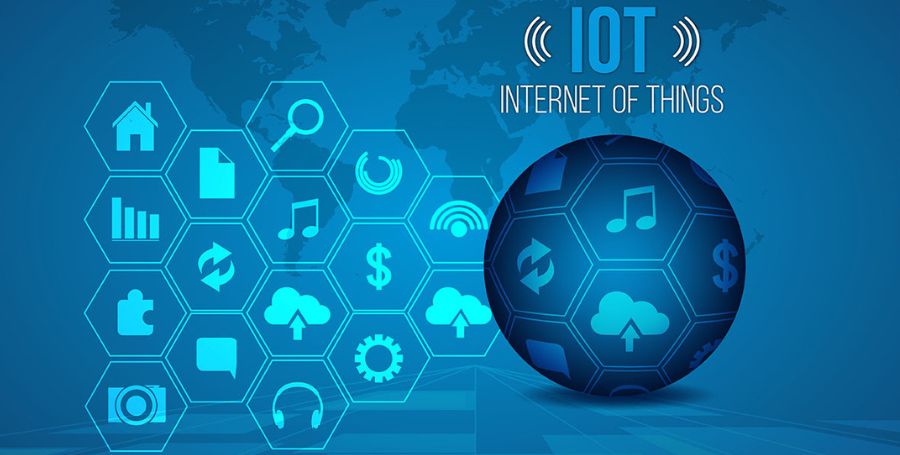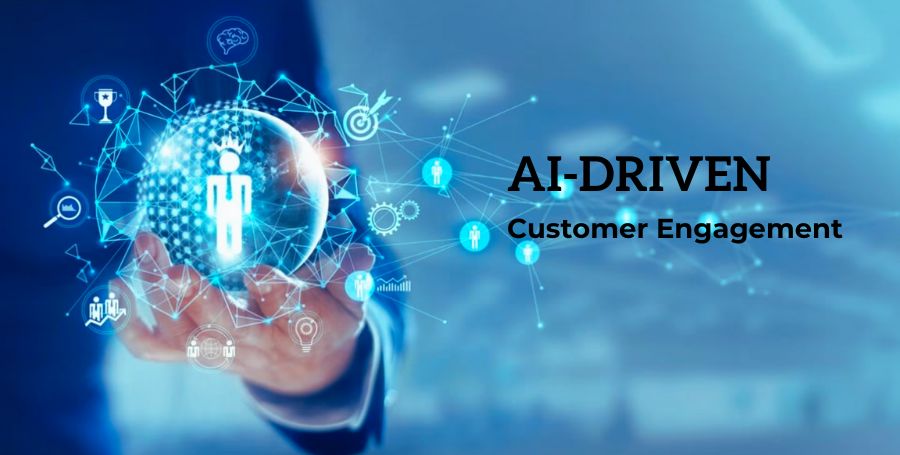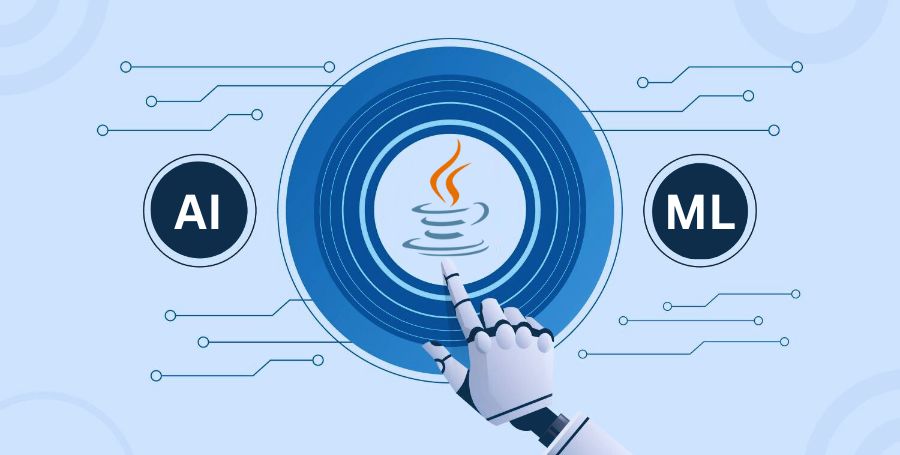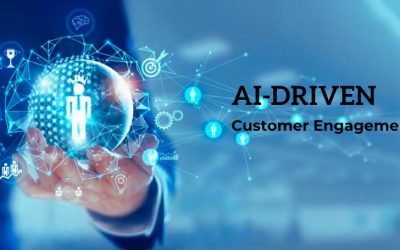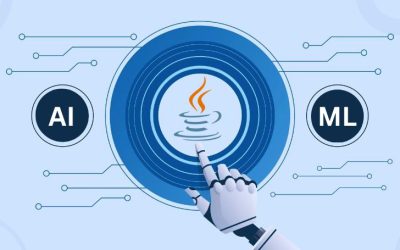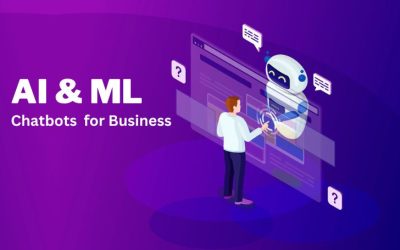Artificial intelligence (AI) is playing a bigger part in software development in today’s ever-changing technology world. Artificial Intelligence is transforming software development, testing, and maintenance processes. These changes have important ramifications for offshore software development services. Artificial intelligence (AI) integration is becoming a key component in software development, changing how applications are designed, built, and maintained in the dynamic field.
The symbiotic interaction between AI and offshore software development services is one important part of this transformation. AI is turning the game in this area as businesses look to hire highly experienced and reasonably priced development teams from around the globe. Because they can save costs and access worldwide talent pools, offshore software development services, which involve assigning software projects to remote teams or businesses, have become incredibly popular.
AI Technology Is An Integral Part Of Offshore Development
Artificial Intelligence (AI) technologies have become an integral part of offshore development, presenting unparalleled advantages and creating new opportunities. Due to the important role of AI, it is used by AI Development Company in offshore software development services in various ways. The best offshore teams are found using machine learning algorithms, which take into account past performance data and project requirements.
Collaboration is facilitated by natural language processing (NLP), which helps to reduce language and communication gaps between stakeholders. AI is also revolutionizing the process of writing code. AI helps developers work and takes the effort required for common coding tasks.
With an emphasis on how AI will impact offshore software development services, in this piece, we will examine current and potential developments in AI in the software development sector.
Current Software Development and AI Trends

AI technology is already used in software development at all stages, from conception to implementation. Let’s examine some of the recent developments impacting this field:
Code Generation
AI-powered programs, such as OpenAI’s GPT-3, can produce complete programs or short segments of code. These tools can greatly speed up the development process, especially in offshore software development when time-to-market is critical.
Debugging and Bug Detection
AI systems can examine code to look for possible problems and make suggestions for solutions. They can predict and avoid problems down the road, negating the need for lengthy testing and debugging phases.
Natural Language Processing (NLP)
NLP models are increasingly being used to process user input and needs analysis. By doing so, developers can create more focused software on users’ needs and feedback.
Automated Testing
AI-powered testing instruments can generate test cases, run tests, and provide reports on their own. It increases test accuracy and coverage while also saving time.
AI can predict when software components or systems are likely to malfunction, allowing for preventive maintenance and reduced downtime. It is known as predictive maintenance.
Code Optimisation
AI code can improve scalability, performance, and efficiency, reducing the cost of offshore development services.
AI in Software Development Services Provided Offshore
AI is changing the way offshore software development services function, bringing with it new opportunities and difficulties.
Cost-Efficiency
By reducing manual labour, AI-driven automation lowers the cost of software development. It is particularly helpful for offshore development, as lower costs are a key selling factor.
QA
Artificial intelligence-powered testing tools can improve offshore software development quality by ensuring it meets requirements and standards.
Talent Augmentation
By automating monotonous chores, AI can help offshore development teams free up talented engineers to work on more intricate and creative areas of the project.
Cross-Cultural Communication
NLP models can assist in removing linguistic and cultural barriers between clients and offshore staff, fostering better understanding and cooperation.
Time-Zone Compatibility
By automating task scheduling and communication, AI can help teams collaborate across time zones.
AI’s Potential Effects on Software Development
In the future, artificial intelligence will have much more significant effects on software development.
Rapid Prototyping
AI will make it possible to quickly produce proofs of concept and prototypes, which will help clients more effectively visualize and refine their software needs.
Software That is Self-Adaptive
Artificial intelligence (AI) will enable software to adjust to changing conditions and demands without the need for human involvement, resulting in software that is more robust and resilient.
AI-First Development
In the future, developers might concentrate on higher-level duties like setting objectives and directing the AI while AI takes the lead in software development.
Enhanced Security
In a world where software is becoming more interconnected, artificial intelligence (AI) will be essential in detecting and reducing security risks.
Automated Maintenance
AI will proactively monitor and maintain software, reducing downtime and ensuring uninterrupted operations.
International Cooperation
AI will make international collaboration easier by bridging linguistic and cultural divides, resulting in more effective offshore software development services.
Constraints and Ethical Issues
Along with the many benefits of using AI in software development, there are also drawbacks and ethical dilemmas.
Job Displacement
Software engineers may be concerned about changing their jobs as a result of the automation of certain tasks.
AI Bias
Training data biases can be inherited by AI models, thus producing biased software. AI algorithms must guarantee fairness.
Privacy and Security
Strict privacy and security guidelines must be followed by AI systems that handle sensitive data to protect user information.
Regulatory Compliance
The use of AI in software development will require compliance with changing regulatory frameworks and standards.
AI-Generated Code Quality
Developers must guarantee the dependability and security of code produced by AI tools, as the quality of such code can differ.
Conclusion
Artificial intelligence is changing the software development landscape, which has a significant impact on offshore software development services. According to current trends, AI can improve offshore project efficiency, quality, and cost-effectiveness. With artificial intelligence (AI) becoming a crucial component of the development process, the future seems even more innovative.
To realize the full potential of AI in software development, barriers and ethical dilemmas need to be overcome. AI-enabled offshore development services are expected to grow significantly, as the industry continues to change.
